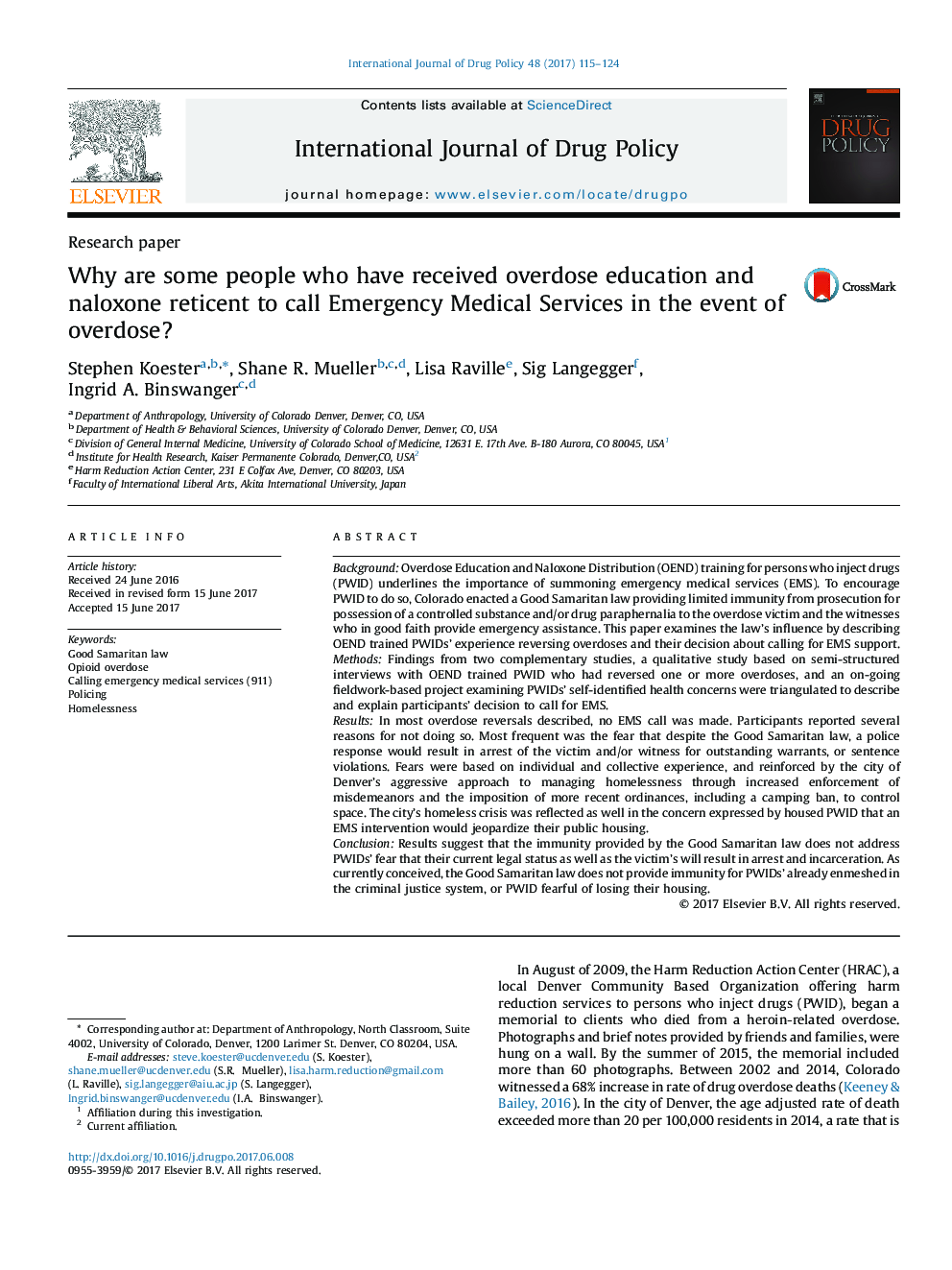| کد مقاله | کد نشریه | سال انتشار | مقاله انگلیسی | نسخه تمام متن |
|---|---|---|---|---|
| 5120773 | 1486257 | 2017 | 10 صفحه PDF | دانلود رایگان |
BackgroundOverdose Education and Naloxone Distribution (OEND) training for persons who inject drugs (PWID) underlines the importance of summoning emergency medical services (EMS). To encourage PWID to do so, Colorado enacted a Good Samaritan law providing limited immunity from prosecution for possession of a controlled substance and/or drug paraphernalia to the overdose victim and the witnesses who in good faith provide emergency assistance. This paper examines the law's influence by describing OEND trained PWIDs' experience reversing overdoses and their decision about calling for EMS support.MethodsFindings from two complementary studies, a qualitative study based on semi-structured interviews with OEND trained PWID who had reversed one or more overdoses, and an on-going fieldwork-based project examining PWIDs' self-identified health concerns were triangulated to describe and explain participants' decision to call for EMS.ResultsIn most overdose reversals described, no EMS call was made. Participants reported several reasons for not doing so. Most frequent was the fear that despite the Good Samaritan law, a police response would result in arrest of the victim and/or witness for outstanding warrants, or sentence violations. Fears were based on individual and collective experience, and reinforced by the city of Denver's aggressive approach to managing homelessness through increased enforcement of misdemeanors and the imposition of more recent ordinances, including a camping ban, to control space. The city's homeless crisis was reflected as well in the concern expressed by housed PWID that an EMS intervention would jeopardize their public housing.ConclusionResults suggest that the immunity provided by the Good Samaritan law does not address PWIDs' fear that their current legal status as well as the victim's will result in arrest and incarceration. As currently conceived, the Good Samaritan law does not provide immunity for PWIDs' already enmeshed in the criminal justice system, or PWID fearful of losing their housing.
Journal: International Journal of Drug Policy - Volume 48, October 2017, Pages 115-124
